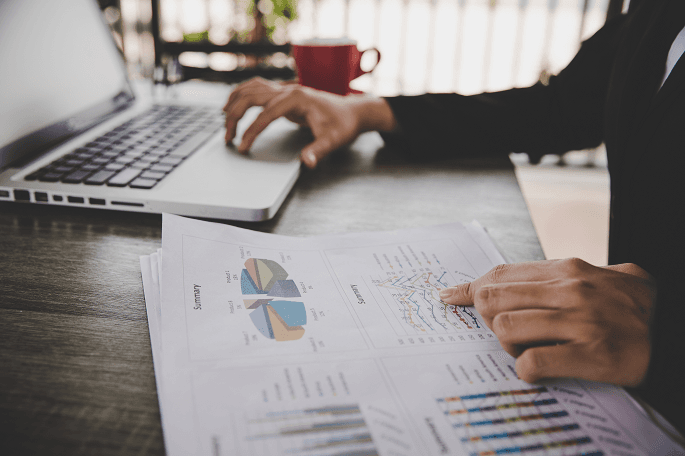Employers and Universities: Work with us?

How to become an economist
Economics is the study of the production and distribution of wealth. Ultimately economics is really about how people live, the choices we make and how we relate to one another.
If you’ve got a knack for breaking down complex information and thinking critically, a career as an economist might be for you. In this guide we explore careers in economics, as well as the skills required and how to become an economist.
Learn more: Find out where studying economics in school can lead you
What are economists?
Economics is a social science that explores the buying and selling of goods and services. Economists, then, give specialist advice about the economy to governments, banks, companies and other organisations. They use their expert knowledge from studying economics in order to identify patterns, produce forecasts of economic trends and then make recommendations.
Careers in economics also include roles in banking and finance; people often become financial advisors, accountants, and investment analysts. Their understanding of people’s actions also means they’re well suited for roles in government and policy.
What do economists do?
Economists carry out large amounts of research and collect information and data in order to help them give advice on the economy. As we mentioned, economist jobs exist in different sectors, from the government to finance and business. Economists might working for economic consultancies, big businesses, financial companies, banks, and higher education institutions.
Their specific tasks will vary depending on which Career Zone they work in, but might include:
- Gathering information from databases, journals and websites.
- Keeping track of past and present economic trends.
- Using specialist software to analyst data and statistics.
- Assemble and collate your findings in order to provide recommendations.
- Carry out surveys.

Economists research and analyse large volumes of data - Write reports and give presentations of your findings – often to people who don’t have a background in economics.
- Create and use mathematical models that can predict future economic trends or developments.
- Review current economic policies and plans to see if they’re working.
- Give advice on the potential impact on the economy that certain policies, products, services or projects might have.
- Explain your research methods and justify the conclusions you drew.
Looking for work? View our jobs and apprenticeship board now
Again depending on the job role, specific projects might include:
- Analysing the efficiency of scarce resources in the National Health Service (NHS).
- Assessing the economic impact of the Olympics on the UK.
- Giving advice to a trade union about the economic repercussions of its new policy.
- Examining how exchange rates affect the competitiveness of UK trade.
Economist jobs at entry level typically pay between £25,000 and £35,000. Senior economists can expect to earn up to £50,000 or more. Salaries do tend to vary quite a lot: those working in banking, financial services and consulting usually earn more.
What skills are needed for careers in economics?
These are some of the skills and aptitudes you’ll need if you want to pursue a career in economics:
- Research skills.
- Critical thinking abilities.
- Able to make sense of complicated information and statistics.
- Problem solving.
- Knack for maths.
- Analytical thinking.
- Very good communication skills.
- Thorough, methodical and good attention to detail.
- Motivated and ambitious.
- Logical thinking.
- Reasoning and decision-making skills.
- Able to form good working relationships.
- Time management skills.
- Real interest in economics.
Foreign language skills can be an advantage, particularly if you want to study or work abroad.
How to become an economist
You’ll need an economics degree in order to pursue a career as an economist. A good degree in another subject may lead to an economics job, but you’ll still need a postgraduate qualification in economics. You’ll usually also need good A-level results.
Graduates can then apply for the Government Economic Service Fast Stream programme. Learn more here.
There is now also a degree apprenticeship, where you can study and work at the same time. The four-year ‘professional economist apprenticeship’ is open to students with three A-levels and an aptitude for maths. Upon completion, apprentices will have a level 6 apprenticeship qualification as well as an economics degree – plus four years of work experience from on-the-job training.
Read next: Should I apply for an apprenticeship or go to uni?
Main image by jcomp via Freepik; economist researching via Pexels.
